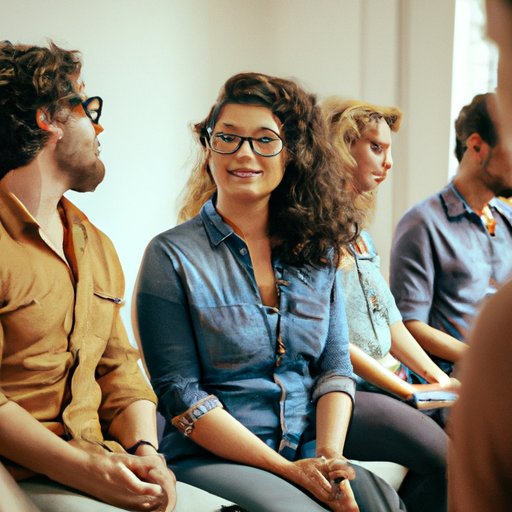Introduction
Social awkwardness is a feeling of discomfort or unease in social situations. It can manifest itself as an inability to start or maintain conversations, or an inability to express oneself clearly. It can be caused by lack of confidence or knowledge about the topic at hand, or simply by feeling out of place or uncomfortable.
Although it can be intimidating, learning how to be less socially awkward can have many benefits. Being able to communicate effectively with others can help build relationships, make new friends, and even improve career prospects. In this article, we will explore some tips and strategies that can help reduce social awkwardness.
Practice Active Listening
Active listening is a communication technique that involves actively engaging with the conversation instead of simply waiting for your turn to speak. This involves paying attention to what the other person is saying and responding accordingly. Showing genuine interest in the conversation can help break down barriers and make the conversation flow more naturally.
In addition to paying attention to the conversation, it is important to also engage in the conversation. Ask follow-up questions, provide your own insights, and use body language to indicate that you are engaged. This can help create a more comfortable environment and make the conversation easier.
Take an Improv Class
Taking an improv class can be a great way to become more comfortable in social situations. Improv classes teach students how to think on their feet and respond quickly to different scenarios. This can help build confidence and give participants the skills they need to be more successful in social situations.
In addition to improving communication skills, improv classes can also help build self-esteem. Participants learn to accept themselves and their mistakes, which can help them feel more confident in social situations.
Ask Questions
Asking questions is a great way to break the ice and get to know someone better. Asking questions shows genuine interest in the conversation, which can make the other person feel more comfortable and open up more. Plus, it gives you something to talk about if the conversation starts to lag.
When asking questions, it is important to remember to be open-minded and not make assumptions. Everyone has different experiences and perspectives, so it’s important to be respectful and listen to what the other person has to say.
Make Eye Contact
Eye contact is often cited as one of the most important aspects of any social interaction. Making eye contact conveys respect, interest, and engagement in the conversation. It can also help build trust and make the conversation more natural and comfortable.
It is important to remember that eye contact doesn’t have to be intense or intimidating. A simple smile or nod can go a long way in creating a more comfortable atmosphere.
Be Yourself
One of the best ways to be less socially awkward is to simply be yourself. Trying to be someone you’re not can make you feel uncomfortable and out of place. It is much easier to connect with others when you are true to yourself.
Don’t be afraid to show your personality and let your true self shine through. People appreciate genuine connections, and being yourself can help create those connections.
Conclusion
Learning how to be less socially awkward can be intimidating, but there are many strategies that can help. Practicing active listening, taking an improv class, asking questions, making eye contact, and being yourself can all help reduce social awkwardness and make it easier to connect with others.
(Note: Is this article not meeting your expectations? Do you have knowledge or insights to share? Unlock new opportunities and expand your reach by joining our authors team. Click Registration to join us and share your expertise with our readers.)
